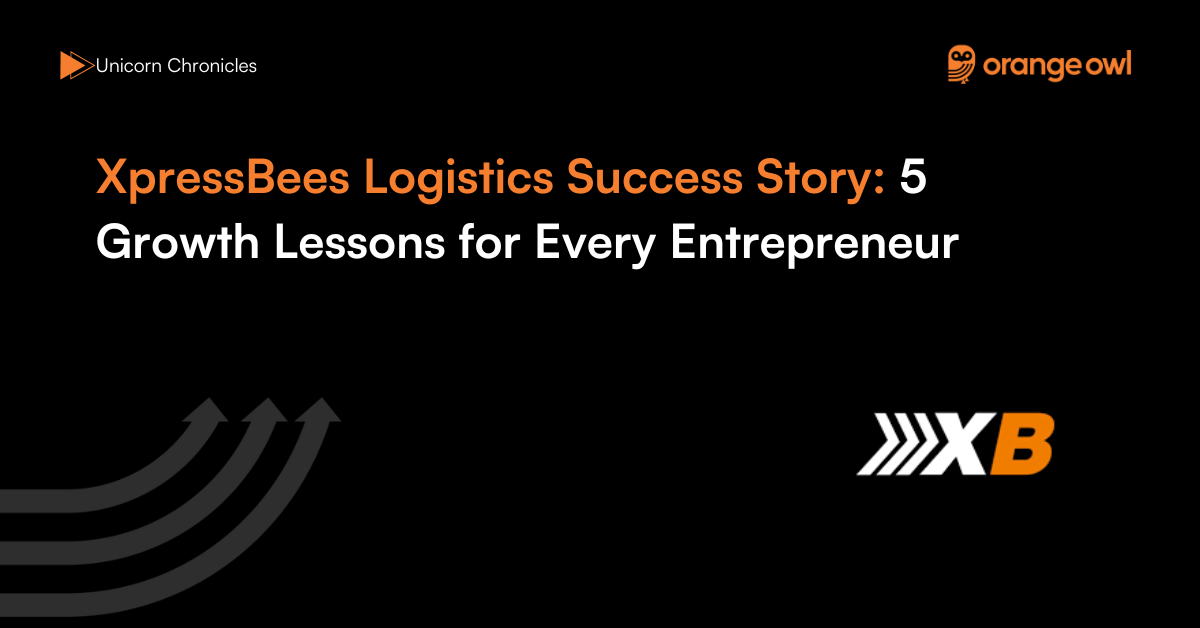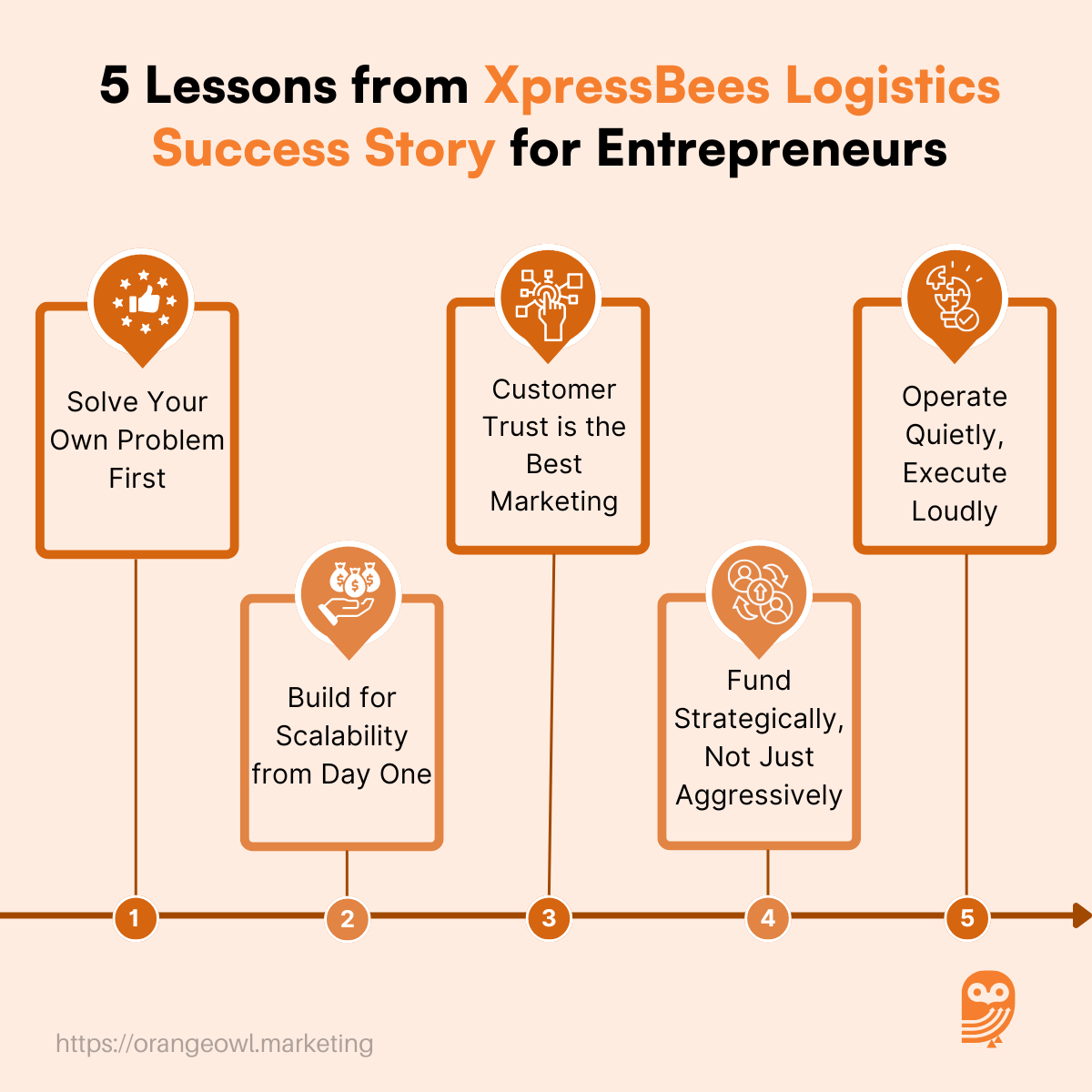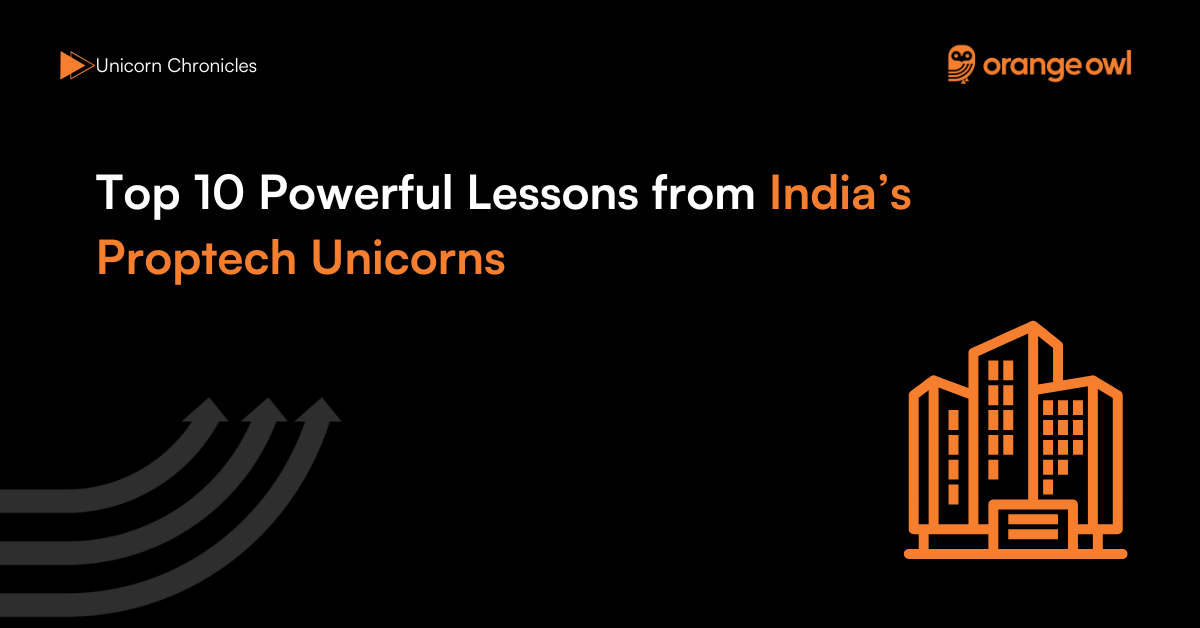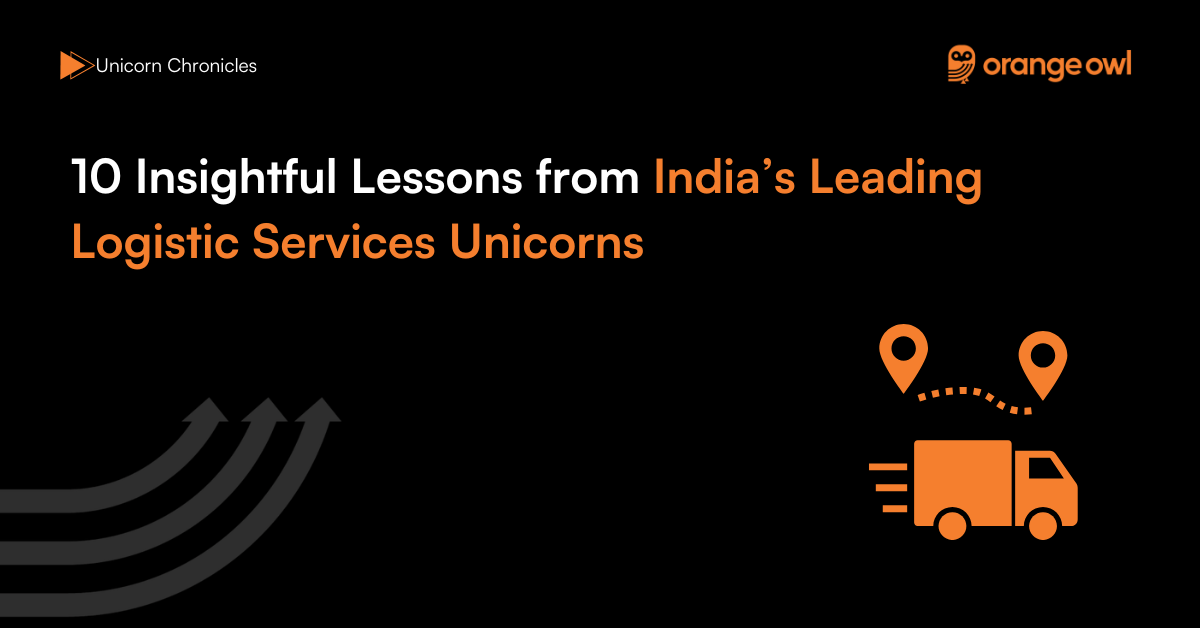XpressBees Logistics Success Story: 5 Growth Lessons for Every Entrepreneur
Vivek Goel
June 17, 2025

Table of Contents
Introduction
In the fast-paced world of e-commerce, efficient logistics can make or break a business. XpressBees, one of India’s fastest-growing logistics companies, has emerged as a silent but powerful player enabling countless online deliveries across the country. With a strong presence in over 5,000 cities and towns, serving more than 20,000 pin codes, and handling over 1.5 million packages daily, XpressBees isn’t just a logistics provider—it’s a growth partner for many digital businesses.
The company boasts over 100 hubs across India, more than 3 million square feet of warehouse capacity, and operations spanning 52 airports, underscoring its expansive infrastructure. Founded in 2015 as a spin-off from FirstCry, XpressBees has rapidly ascended in the logistics sector, achieving unicorn status with a valuation of $1.4 billion. This remarkable growth trajectory highlights XpressBees’ pivotal role in India’s e-commerce ecosystem.
As we delve into XpressBees’ journey, we’ll uncover the strategies and lessons that have propelled its success, offering valuable insights for entrepreneurs navigating the dynamic landscape of logistics and e-commerce.
Origin Story
XpressBees was born out of necessity and vision. In 2012, when Amitava Saha and Supam Maheshwari, co-founders of the baby products e-commerce company FirstCry, began scaling their operations, they encountered a major roadblock—logistics. Their deliveries were delayed, especially in Tier II and III cities, the customer experience was suffering, and most importantly, there were no logistics partners truly built for the needs of e-commerce in India.
Rather than waiting for the ecosystem to catch up, the founders took charge. They developed an in-house logistics system to support FirstCry’s deliveries. But soon, they realized that this logistics framework could benefit not just their company but the entire e-commerce industry. In 2015, they officially spun off this in-house operation into an independent company—XpressBees.
As Amitava Saha explained in an interview,
“We understood that logistics wasn’t just a back-end function—it was a core component of customer satisfaction.”
XpressBees was envisioned as a tech-enabled, speed-optimized, and scalable logistics platform that could handle high-volume e-commerce shipments with precision. It aimed to bridge the gap between rising customer expectations and inadequate delivery infrastructure in the country. What started as a necessity soon transformed into a full-fledged logistics revolution, laying the foundation for what would become one of India’s leading logistics brands.
Business Space and Early Challenges
XpressBees entered the logistics sector at a time when the Indian market was already seeing fierce competition. Established players like Blue Dart, Delhivery, and Ecom Express were deeply entrenched, and customer loyalty to large logistics providers was strong. The company had to navigate not just this competitive pressure but also the broader challenges of India’s logistics landscape—rural connectivity gaps, unpredictable delivery routes, lack of digital infrastructure in many regions, and shortage of skilled last-mile delivery personnel.
In the beginning, scalability and capital constraints were major hurdles. While FirstCry’s scale gave them a solid foundation, expanding beyond that client base required significant trust-building. Convincing third-party e-commerce platforms to rely on a relatively unknown logistics startup was a major obstacle.
As Amitava Saha candidly noted,
“There was skepticism. Clients asked, ‘Why should we choose you over a big brand?’ We had to prove ourselves every single day.”
Another strategic challenge was the balancing act of detaching from FirstCry while still leveraging its scale and operational insights. XpressBees had to build an identity as an independent logistics brand, with its own infrastructure, technology stack, and operational capabilities. This included investing heavily in:
- A national network of hubs, sorting centers, and last-mile agents
- Development of proprietary tech platforms for route optimization and real-time tracking
- Building reverse logistics and cross-border shipping solutions
The early years tested the founders’ resilience, but also clarified their purpose—XpressBees wasn’t just another delivery company. It was a logistics engine designed to power India’s digital economy. These foundational struggles set the stage for their rapid scaling in the years that followed.
Growth Strategies
From its inception, XpressBees embraced a tech-first, customer-centric philosophy, allowing it to scale in a highly competitive and operationally complex industry. One of its key strategic moves was to evolve into a full-stack logistics provider—offering services not just in B2C e-commerce deliveries, but also in B2B logistics, reverse logistics, and cross-border shipping. This diversified approach opened up multiple revenue streams and helped the company withstand fluctuations in any single segment.
Technology was another foundational pillar. XpressBees invested heavily in building an in-house tech platform powered by AI-based route optimization, real-time shipment tracking, automated hub management, and intelligent parcel sorting systems. This technology backbone improved operational efficiency, reduced errors, and enhanced the customer experience—especially critical for high-volume clients with demanding SLAs.
Fueling this growth were strategic investments from marquee global investors. Early backing from Alibaba Group gave XpressBees both capital and credibility in the logistics ecosystem. Later, funding from institutional giants like Blackstone, TPG, Ontario Teachers’ Pension Plan (OTPP), and Khazanah Nasional Berhad helped accelerate infrastructure expansion, technology upgrades, and market penetration.
With every round, the company stayed focused on improving delivery networks, expanding warehouse capacity, and hiring top talent. This consistent execution culminated in XpressBees achieving unicorn status in 2022, with a valuation exceeding $1.2 billion, making it one of the few logistics-first unicorns in India.
Marketing Strategies
Unlike traditional consumer-facing companies, XpressBees operated primarily in the B2B space, where trust, reliability, and operational excellence carry more weight than mass marketing campaigns. Rather than investing heavily in advertisements, XpressBees focused on relationship-driven marketing, positioning itself as a vital “enabler of e-commerce” rather than just a delivery vendor. This subtle but strategic positioning helped them gain credibility among large retailers, marketplaces, and D2C brands.
A cornerstone of their marketing approach was client-centric customization. By offering flexible and scalable logistics solutions tailored to each client’s needs—be it speed-based delivery, reverse logistics, or rural fulfillment—they created strong value propositions that led to long-term contractual partnerships.
Reliability became their strongest brand promise. With consistently high on-time delivery rates and low return ratios, they built a reputation for dependability in an industry often plagued by delays and unpredictability.
The founders also played a crucial role in brand-building through thought leadership. By appearing in industry panels, media interviews, and startup events, they reinforced the company’s credibility and highlighted their deep understanding of India’s logistics challenges. As Amitava Saha remarked in a recent interview,
“Marketing for us was about delivering on promises. If we did that, clients stayed—and they brought others.”
This trust-based marketing strategy proved highly effective, especially in an ecosystem where referrals and word-of-mouth carry immense weight. It allowed XpressBees to scale not just in numbers, but in influence—quietly becoming the logistics backbone of India’s e-commerce revolution.
5 Growth Lessons Every Entrepreneur Should Learn
1. Solve Your Own Problem First
XpressBees didn’t start with a grand market pitch—it began with a real, internal pain point. As the logistics arm of FirstCry, it was born out of the founders’ frustration with unreliable delivery services hampering customer satisfaction.
Instead of relying on external vendors, they built a solution tailored to their specific needs. This inside-out approach ensured that the product was solving a genuine problem with deep domain understanding. Entrepreneurs often look outward for startup ideas, but some of the best ventures are hidden within your own business challenges.
2. Build for Scalability from Day One
Many startups fall into the trap of short-term fixes. XpressBees took a different route by investing in technology infrastructure from day one. They didn’t wait for demand to break their systems—instead, they built platforms that could scale seamlessly as their volumes grew.
AI-driven route planning, automated hubs, and robust data dashboards allowed them to handle millions of shipments with efficiency. For founders, the takeaway is clear: don’t just build for now—build for when your business is 10x bigger.
3. Customer Trust is the Best Marketing
In the B2B space, flashy campaigns rarely beat operational excellence. XpressBees focused relentlessly on delivering results, not just promises. Their high on-time delivery rate, customizable services, and responsive support earned them long-term clients and referrals.
As co-founder Amitava Saha pointed out, “Marketing for us was about delivering on promises.” That’s a lesson every founder can use: when your product consistently meets expectations, your customers become your loudest advocates.

4. Fund Strategically, Not Just Aggressively
Raising capital is important—but who you raise it from, and why, matters more. XpressBees chose investors not just with deep pockets, but with strategic value. Early funding from Alibaba opened doors to e-commerce insights, while investments from Blackstone, Khazanah, and TPG allowed them to scale without compromising control.
Each funding round aligned with a clear business goal—geographic expansion, infrastructure development, or tech innovation. Entrepreneurs should view funding as a tool, not a trophy.
5. Operate Quietly, Execute Loudly
Unlike some startups that chase headlines, XpressBees preferred to stay under the radar and let results speak for themselves. While media attention was minimal, their operational milestones were massive—handling over 4 million shipments a day, covering 20,000+ pin codes, and supporting thousands of e-commerce businesses across India.
Their rise was built on discipline, not drama. For entrepreneurs, the lesson is timeless: success doesn’t need noise—it needs consistency, focus, and execution.
Conclusion
The XpressBees success story is a textbook example of solving real problems with precision, patience, and passion. What began as an in-house fix for FirstCry’s logistics soon morphed into a national backbone for India’s e-commerce boom.
They didn’t disrupt with slogans—they innovated through systems. With a deep focus on customer satisfaction, scalable tech, and strategic growth, XpressBees has quietly redefined how logistics works in one of the world’s toughest markets.
For entrepreneurs, the biggest takeaway is this: you don’t need to be loud to lead. Whether you’re in logistics, SaaS, or any B2B service, solving problems better than anyone else—and doing it consistently—is the ultimate growth strategy.
XpressBees didn’t just build a delivery network—they built a model of execution excellence. And that’s a journey every founder should learn from.


